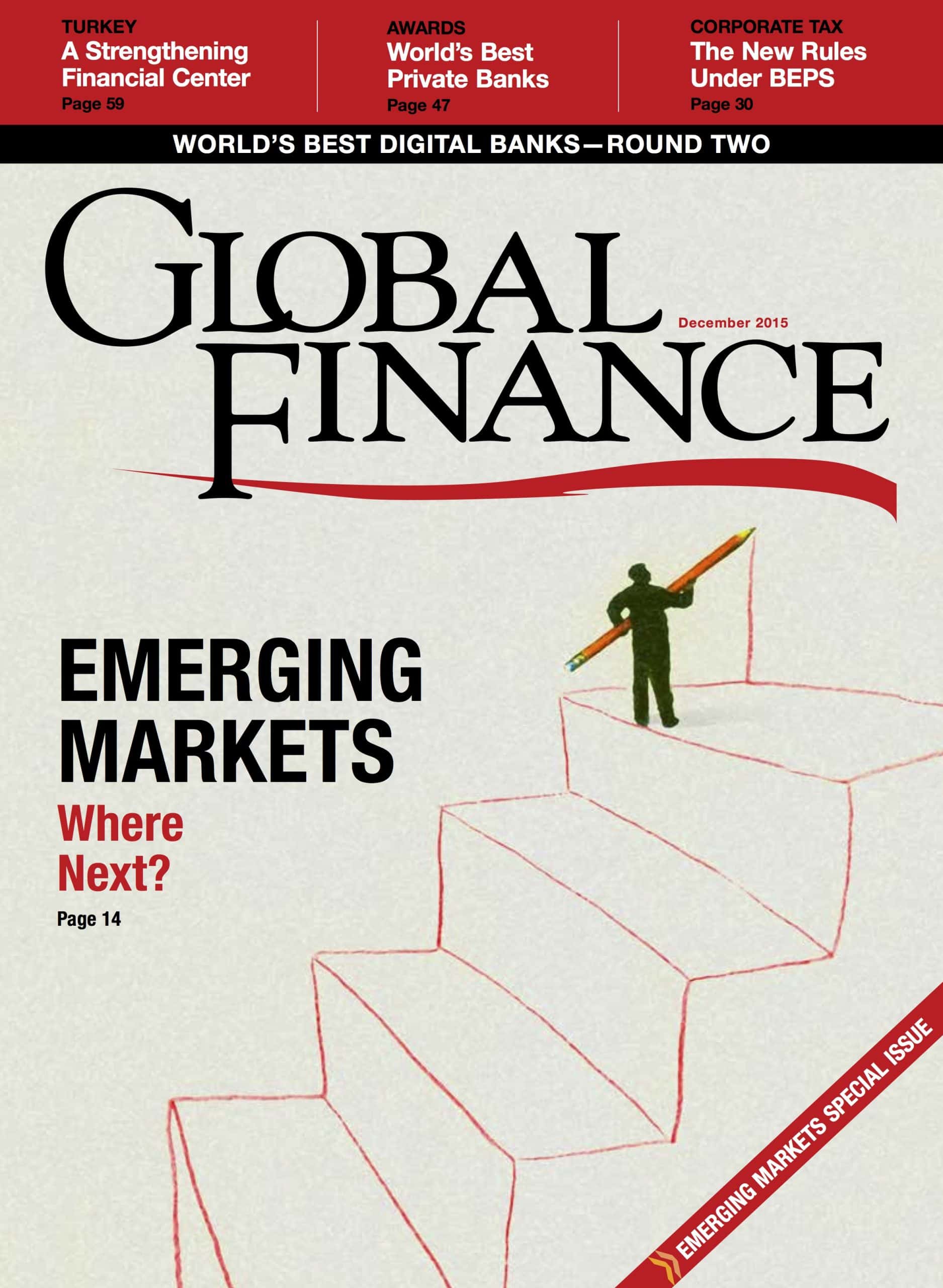In our annual special issue on emerging markets, we take a macro and regional view of the new realities (yes, more than one) that have developed over the past year. There are quite a few surprises.
DECEMBER 2015 | VOL. 29 NO. 11

We get the impression that many emerging markets analysts and investors have swung from one extreme point of view to the other. Until recently the EMs were considered the main engine of the world economy. Yet some observers seem to believe these countries—especially the BRICs—have lost not just their momentum but their potential. The truth is that the slowdown of the Chinese economy and the drop in commodities prices have hurt many but not all the emerging economies, and certainly not to the same degree.
Naturally, these developments have affected commodity producers. They are also forcing a distinction between countries that have used their profits from oil and other commodities to make structural adjustments and reforms and those that have not. The latter now face serious consequences, including local currency instability, slower flows of foreign direct investment, piles of maturing debt issued in foreign currencies, and a worsening balance of payments. Meanwhile, as Olga Yangol, senior emerging markets debt specialist at HSBC, reminded us recently, the individual EMs’ fundamentals are very different, and some net oil importers clearly benefit from the drop in prices.
At the same time, 2015 ends on a note of pain and uncertainty—the result of large-scale terrorist actions in the West, the Middle East and Africa in recent weeks. It is impossible to predict the outcome of the war on terror, but one consequence of the current situation could be new global strategic alliances among countries that share a common enemy and not much else. We might even see more global cooperation within multilateral organizations, such as the UN and the IMF. The working papers of the November G20 meeting in Antalya, Turkey, show an unprecedented level of discussion about the need for common governance and regulation in many areas, including the banking and corporate sectors. It is a ray of hope in a worrisome climate.

Andrea Fiano | Editor
afiano@gfmag.com



